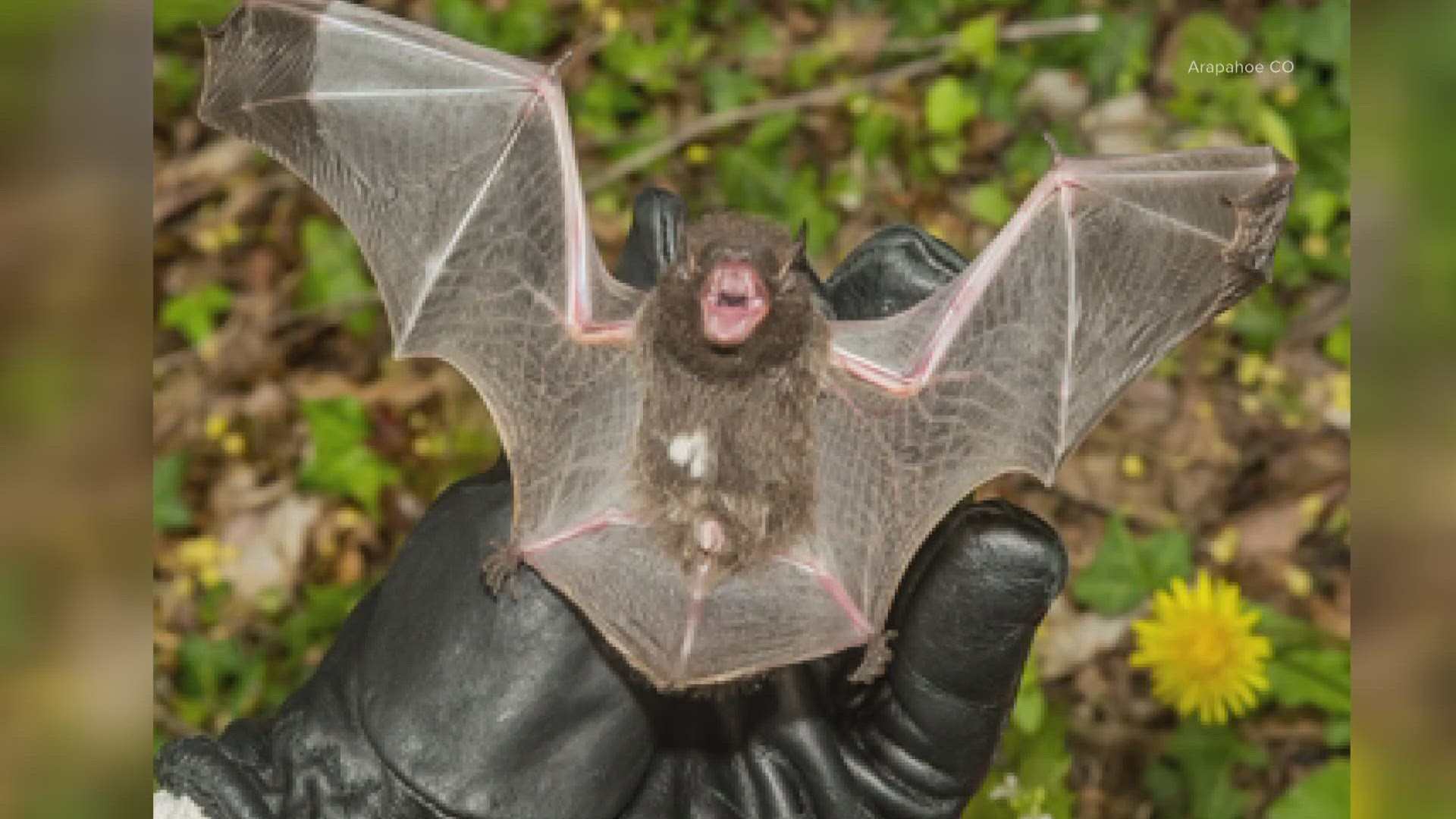LITTLETON, Colo. — A bat found just south of downtown Littleton tested positive for rabies. This is the first confirmed case of rabies in an animal found in Arapahoe County for this year, according to Arapahoe County Public Health.
One person was exposed to the bat and has begun rabies treatment, the health department said.
There have been 39 total cases of rabies being found in bats and skunks across the state and metro area, the health department said.
Rabies is primarily transmitted from a bite or scratch from a rabid animal or exposure to infected saliva, according to the health department. Rabies infection is nearly always fatal in humans and animals once symptoms appear, the health department said.
Anyone living in Arapahoe County who has come into contact or whose pet has come into direct contact with a bat, should call the health department at 303-795-4584. The health department will evaluate the risk and see if any need for treatment may be warranted.
The health department has this information for anyone who finds an animal in the wild:
- Do not feed or touch wild animals, including baby animals. Do not bring them into your home. If you do come into direct physical contact with an animal or its saliva, wash the affected area immediately with soap and water and notify your health care provider and public health department right away.
- Have conversations with children about staying away from wildlife and notifying an adult immediately if they do encounter an animal.
- If you see an animal that is injured, needs help, looks sick or is behaving strangely (ex., a nocturnal animal active during the day, an animal appearing wobbly or disoriented, exhibiting no fear of humans, etc.), contact your local animal control immediately. Intervening to help the animal yourself will not help them, only put you at risk.
- Ensure pets are up to date on their vaccinations against rabies, and keep them away from any wildlife you encounter, dead or alive.
- Do not allow pets to roam free or off-leash and monitor your animals as much as possible when they are outside in an enclosed yard.
- If a pet does come into contact with an animal, or is bitten or scratched by one:
- Notify your veterinarian and Arapahoe County Public Health immediately.
- Even pets vaccinated against rabies may be at risk of infection without an additional medical intervention to help ensure protection.
- Wash your pet’s wound immediately with soap and water, but ensure you are protecting yourself as well by covering all exposed skin with gloves, a face mask and, if possible, glasses or goggles.
- Act on the side of caution. Bat bites are tiny and extremely hard to see, and skunk bites can also be small and difficult to identify. If your pet has been around a bat, treat it like it was exposed.
- Contact local animal control immediately if an animal, such as a bat, gets trapped indoors, as this can pose a significant health risk to the individuals living or visiting that space.
- Remember that while rabies is of particular concern, there are other diseases that can be transmitted by animals in Colorado, such as plague (most often spread by prairie dogs), tularemia (rabbits), and hantavirus (mice). No matter the animal, their age, their size or how cute they are, proceed with caution to protect yourself, your loved ones and your pets.
SUGGESTED VIDEOS: Animals and Wildlife

